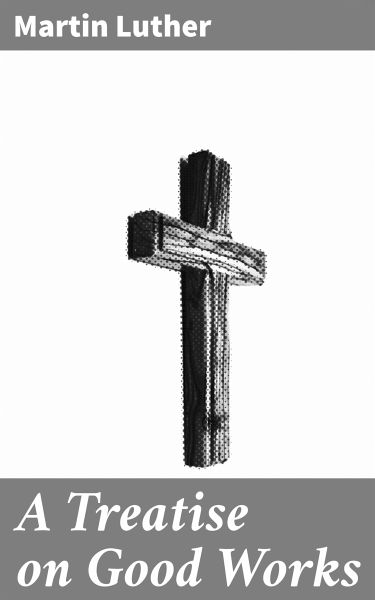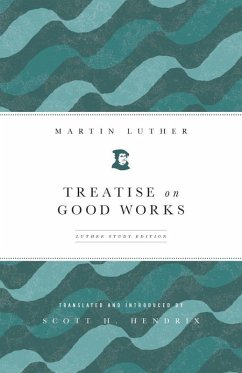
A Treatise on Good Works (eBook, ePUB)
Exploring Faith and Good Deeds in Protestant Literature
Übersetzer: Reu, Johann Michael
Versandkostenfrei!
Sofort per Download lieferbar
1,99 €
inkl. MwSt.
Weitere Ausgaben:

PAYBACK Punkte
0 °P sammeln!
In "A Treatise on Good Works," Martin Luther articulates a revolutionary approach to Christian ethics, emphasizing the profound relationship between faith and deeds. Written during the nascent stages of the Reformation in 1520, the treatise challenges prevailing notions of salvation by works, arguing instead for a faith-centric understanding of righteousness. Luther employs a direct and accessible literary style, intertwining Biblical references with personal conviction to assert that good works are a reflection of true faith rather than a means to attain divine favor. This text not only criti...
In "A Treatise on Good Works," Martin Luther articulates a revolutionary approach to Christian ethics, emphasizing the profound relationship between faith and deeds. Written during the nascent stages of the Reformation in 1520, the treatise challenges prevailing notions of salvation by works, arguing instead for a faith-centric understanding of righteousness. Luther employs a direct and accessible literary style, intertwining Biblical references with personal conviction to assert that good works are a reflection of true faith rather than a means to attain divine favor. This text not only critiques the prevailing Catholic doctrine but also lays a foundational stone for Protestant theology, igniting deeper theological discussions on grace and moral responsibility. Martin Luther, a seminal figure in Christianity, was deeply influenced by his own struggles with sin and the Church'Äôs emphasis on indulgences, which he found to be a distortion of Biblical teachings. His personal journey from monk to reformer motivated him to advocate for a return to the core tenets of faith as expressed in Scripture. "A Treatise on Good Works" serves as a pivotal manifestation of his theological evolution, imbuing his reflections with urgency and clarity during a period marked by ecclesiastical corruption. This treatise is highly recommended for theologians, historians, and anyone interested in the dynamics of faith and morality. It invites readers to reconsider the relationship between belief and action within the Christian tradition, making Luther's insights both timely and timeless. Engage with this work to understand its lasting impact on subsequent generations and its role in shaping the discourse on ethics and faith.
Dieser Download kann aus rechtlichen Gründen nur mit Rechnungsadresse in A, B, BG, CY, CZ, D, DK, EW, FIN, F, GR, H, IRL, I, LT, L, LR, M, NL, PL, P, R, S, SLO, SK ausgeliefert werden.














